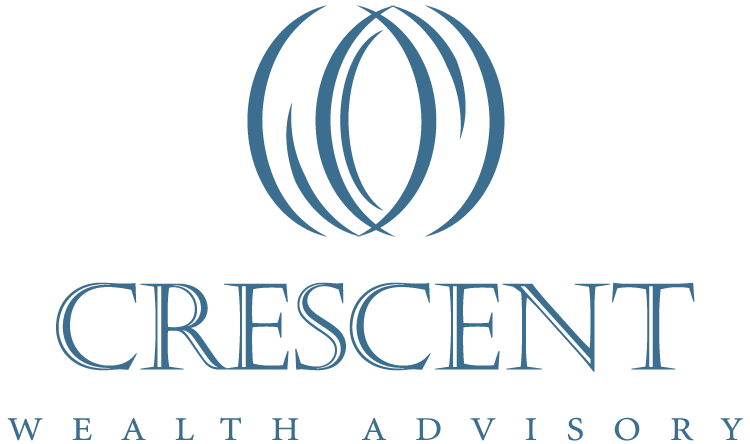
Crescent Insights
Featured Posts
Markets shifted tone, and investors grew more anxious of the current economic environment as foreign trade policy took hold with the Trump administration’s announcement of a 10% universal tariff and additional tariffs on various countries. The Fed’s economic projections have softened from its pre-election views in 2024, as the board of governors digests sticky inflation and increasing uncertainty in the labor market. International equities outpaced domestic by a substantial margin during the quarter as fragile markets began to crack and elevated valuations and heavy index concentration laid the groundwork for heightened market volatility.
Interest rates were volatile during the month as markets digested growing concerns about the economic backdrop and the outlook for inflation. U.S. equity markets declined in March, and U.S. equity REITs declined as the broader equity market sold off.
Weaker economic data, a patient Fed and shifting policy dynamics fueled slowdown fears triggering a broad selloff of U.S. equities, with defensive sectors outperforming. High-valuation stocks fell more than peers, while value and defensive sectors led, and EAFE took another step forward and added to its 2025 lead over the S&P 500, led by EU financial and defense spending along with a cooling of U.S. high valuation stocks.
Top Picks
Markets shifted tone, and investors grew more anxious of the current economic environment as foreign trade policy took hold with the Trump administration’s announcement of a 10% universal tariff and additional tariffs on various countries. The Fed’s economic projections have softened from its pre-election views in 2024, as the board of governors digests sticky inflation and increasing uncertainty in the labor market. International equities outpaced domestic by a substantial margin during the quarter as fragile markets began to crack and elevated valuations and heavy index concentration laid the groundwork for heightened market volatility.
Interest rates were volatile during the month as markets digested growing concerns about the economic backdrop and the outlook for inflation. U.S. equity markets declined in March, and U.S. equity REITs declined as the broader equity market sold off.
Weaker economic data, a patient Fed and shifting policy dynamics fueled slowdown fears triggering a broad selloff of U.S. equities, with defensive sectors outperforming. High-valuation stocks fell more than peers, while value and defensive sectors led, and EAFE took another step forward and added to its 2025 lead over the S&P 500, led by EU financial and defense spending along with a cooling of U.S. high valuation stocks.
Rates generally moved lower in the month, a boon for fixed income assets, growing concerns about the macro economic backdrop sent domestic equities lower in February, and despite the broader equity market sell-off, equity REITs posted a positive return, benefiting from the declining interest rate environment.
President Trump’s executive orders kept investors on edge, but his position on tariffs provided a tailwind for international markets. A 17% drop in NVIDIA shares, triggered by AI competition from China, highlights the risks of market concentration and stocks priced for perfection, and with solid GDP growth and low unemployment, the Fed left rates unchanged, signaling caution rather than a rush to ease policy.
Fixed income markets had a positive month. U.S. equity markets had a positive return in January and REITs were mostly positive in the month.
Our 2025 Financial Planning Guide is now available. It includes up-to-date information in areas including tax planning, education planning, saving for retirement, and more.
Markets shifted tone, and investors grew more anxious of the current economic environment as foreign trade policy took hold with the Trump administration’s announcement of a 10% universal tariff and additional tariffs on various countries. The Fed’s economic projections have softened from its pre-election views in 2024, as the board of governors digests sticky inflation and increasing uncertainty in the labor market. International equities outpaced domestic by a substantial margin during the quarter as fragile markets began to crack and elevated valuations and heavy index concentration laid the groundwork for heightened market volatility.
The Federal Reserve cut its policy rate by another 0.25% in December. Equity markets took a step back in December, and REITs fell in December, negatively impacted by the jump in longer dated interest rates.
More Resources

An Unprecedented Shock: Historic Fall-out from COVID-19
The emergence of COVID-19 in the U.S. as well as the subsequent measures to stem the spread of the virus sparked a rapid deterioration in markets and the economy that has no clear parallel in history.

Quarterly Considerations
Crescent’s Quarterly Considerations report includes the following data: First Quarter 2020 Market Events, Asset Class Performance, Market Themes, Fixed Income Market, Equity Market and Alternatives Market Updates, Economic Review, Diversification and Financial Markets Performance.

2020 Outlook: What Could Possibly Go Wrong?
Our 2020 outlook steps off the shoulders of 2019, a year in which several asset classes hit new all-time highs and valuations are approaching similarly full levels.










